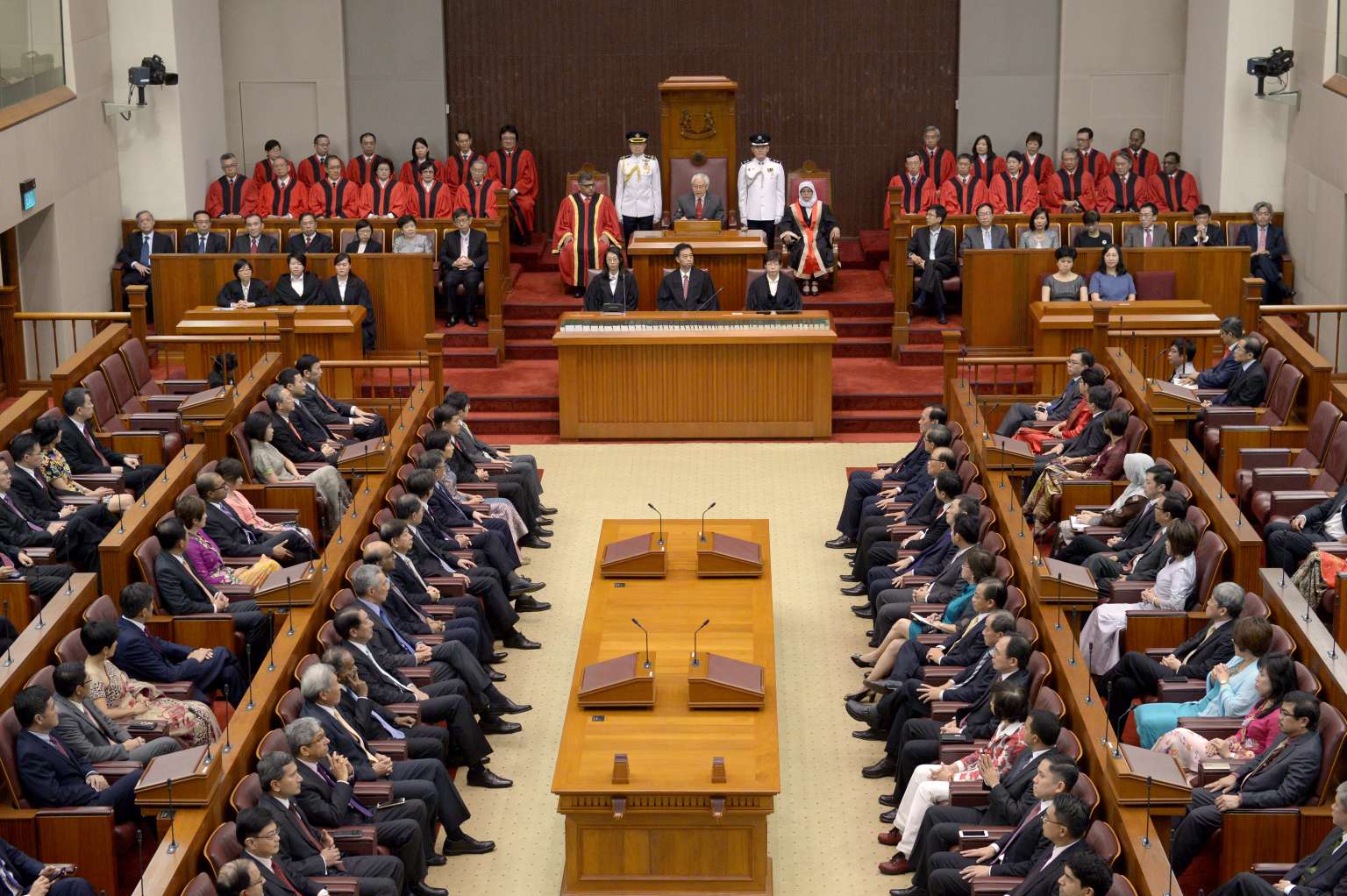Parliament debates President's Address: 6 things that stood out on Day 1
Sign up now: Get ST's newsletters delivered to your inbox

The opening of the first session of the 13th Parliament on Jan 15, 2016. MPs started the week-long debate on the President's Address on Jan 25, 2016.
PHOTO: ST FILE
Follow topic:
SINGAPORE - The week-long Parliament sitting on the President's Address opened on Monday (Jan 25).
Seventeen Members of Parliament (MPs) spoke on the first day, including several new MPs who delivered their maiden speeches in Parliament. They spoke on a range of issues, from perfect storms to motivating millennials.
Here are some highlights of the day:
Who: Ong Ye Kung, Acting Education Minister and MP for Sembawang GRC
What: Mr Ong talked about how there can be more room for "wiser minds" - or judgment and discretion - in governance because "the world is now too complex to be reduced to rules".
The society tends to excessively view issues in numerical terms, he said. "We allocate school places by PSLE T-scores and aggregate scores, and award tenders by lowest bid if we are buying - or highest bid if we are selling."
The Government used to operate "law by law" or by the book, he noted, adding that certainty of rules and consistency in application were critical in the early days of nation building.
As challenges become more complex, "abiding by rules is part of standard operating procedure, but so too, must be the exercise of judgment".
Quote: "The world is now too complex to be reduced to rules and numbers. Rules are made for Man, not Man for rules."
Who: Desmond Choo , MP for Tampines GRC
What: Allow new mothers to opt for flexible work arrangement for eight weeks after they return from their 16 weeks of legislated maternity leave, he proposed.
New mothers can work from home, for instance, as they get back into the routine of work.
Having more progressive work practices as such will also better meet the needs of millennials who are "comfortable producing work anywhere, not just in the office", said Mr Choo who sought to debunk stereotypes about this group of young people.
Quote: "We often hear that the younger workers are only concerned about work-life balance. But I believe what many meant is 'not only is career success important, social and family successes are equally important'."
Who: Tan Wu Meng, MP for Jurong GRC
What: Dr Tan spoke of the "perfect storm" and the confluence of factors which might lead to such a scenario:
- A global downturn for many years;
- Divisions of race, language, religion, social class, inequality and culture;
- A fractured national consensus with divisive politics;
- A major crisis such as a terrorist attack at home or a pandemic infection, or the country being caught in a great power conflict between two old friends
How can Singapore survive such a "perfect storm"? A cohesive greater society, he said, is the answer.
In order to achieve that, government policy must be measured not just by the bottom line, but also by whether it strengthens social cohesion. School system, for instance, must bring students together from different backgrounds.
Quote: "We hope for fair weather. But we must always be ready for exceptional perfect storms."
Who: Sylvia Lim, Workers' Party MP for Aljunied GRC
What: Singaporeans should be encouraged to have a stake in making the country an "exceptional nation", said Ms Lim.
Singaporeans will feel that their opinions matter if there are "power centres" where the Government has no presence, she added. The people will then feel that they are equal partners in their collaboration with the authorities.
"The Government needs to let go and devolve more power" by reducing its presence in matters of "non-core government functions", she said.
Quote: "Its people should have dreams for the country, a vision of what the country should be, and the gumption to go out and realise that vision."
Who: Amrin Amin, Parliamentary Secretary for Home Affairs, MP for Sembawang GRC
What: Mr Amrin spoke about security issues, and the importance of building a cohesive community to fight terrorism.
He shared a personal anecdote: he was an exchange student at Columbia University in New York when the Sept 11 attacks struck in 2001. He recalled how the attacks had spread fear in the United States, and how some wanted to take revenge on Muslims and those who resemble Muslims.
If a terrorist attack should happen here, Singapore must make sure that the terrorists' agenda to create chaos and sow discord does not prevail, he said.
Quote: "Brick and mortar can be repaired and rebuilt easily. Fractures in our community cannot be fixed so readily."
Who: Fatimah Lateef, MP for Marine Parade GRC
What: On the topic of whether Singapore's political system needs to be tweaked, she listed three changes she would like to see:
- Smaller group representation constituencies (GRCs) and more single-member constituencies (SMCs)
- Do away with the Non-Constituency MP scheme, which she felt was "a little lacklustre". The NCMP scheme offers parliamentary seats to the best-performing losing opposition candidates.
- Expand and make the Nominated MP (NMP) scheme more robust, more structured and casting the nets wider for greater inclusivity
Quote: "Our political system can be better. We owe it to ourselves and our future generations to make the positive changes and evolve the system further."

